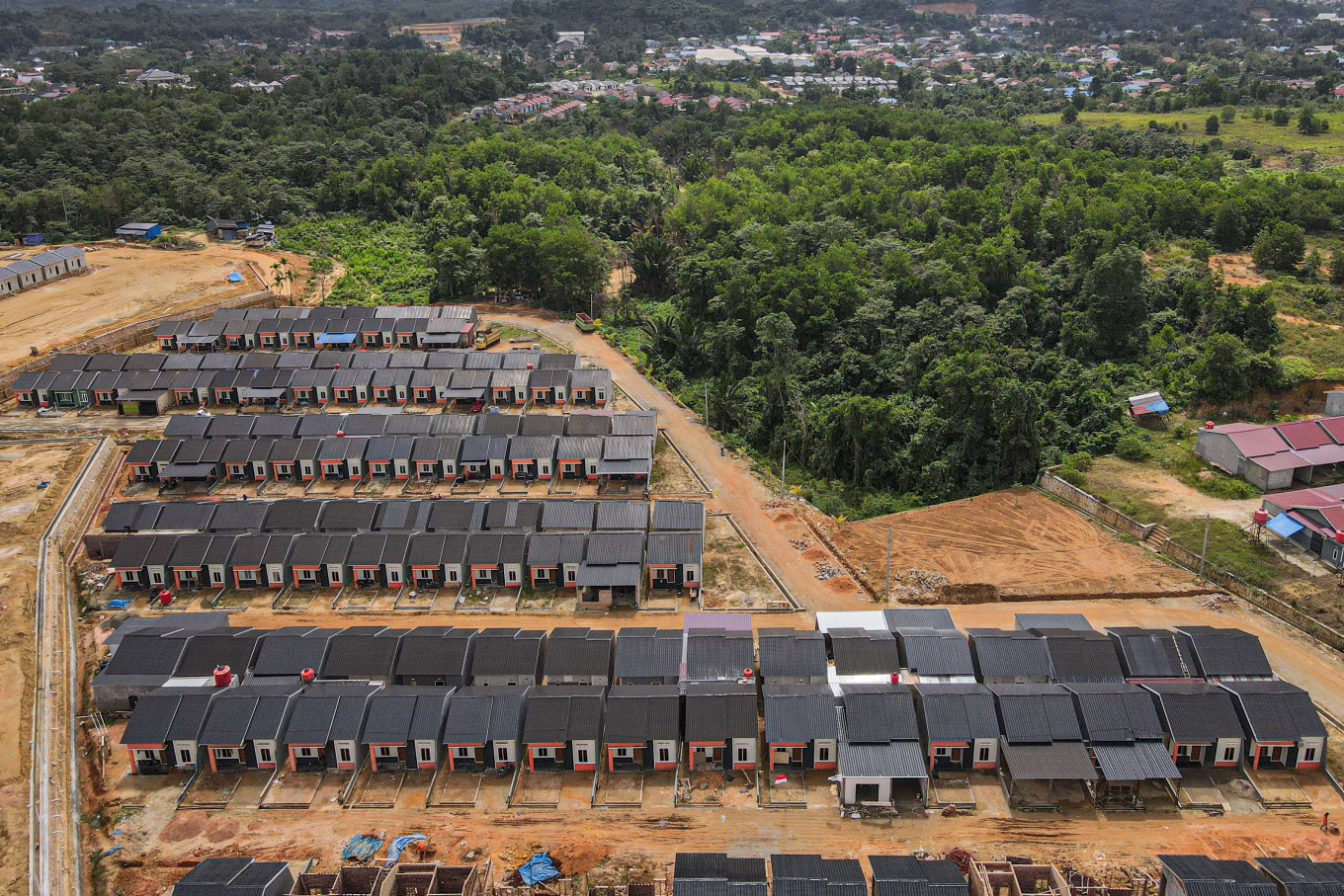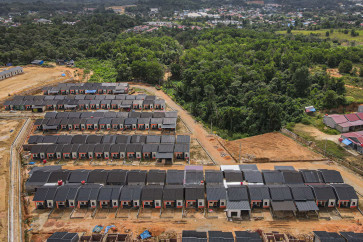Popular Reads
Top Results
Can't find what you're looking for?
View all search resultsPopular Reads
Top Results
Can't find what you're looking for?
View all search resultsAddressing Indonesia’s housing backlog: The need for demand-side policies
The key to resolving the housing backlog is to take a balanced policy approach that addresses both the supply and demand side, more especially the latter, to provide more flexible housing options.
Change text size
Gift Premium Articles
to Anyone
T
he need for housing has been growing consistently in the last few decades. Statistics Indonesia’s National Socioeconomic Survey (Susenas) 2024 shows that the housing backlog, which measures the gap between housing demand and existing homeownership, reached 9.8 million last year.
This backlog is expected to continue to rise because the number of households is growing every year but only some can afford to buy property.
The 3 million houses program, one of the key national strategic programs of President Prabowo Subianto’s administration, aims to address the country’s housing backlog.
The previous government of president Joko “Jokowi” Widodo introduced its own programs to address the housing backlog, such as the 1 million houses program, along with a subsidized mortgage financing scheme known as housing financing liquidity facility (FLPP) and value-added tax (VAT) incentives.
However, these previous programs appear to have had limited impact in reducing Indonesia’s housing backlog. The 1 million houses program only saw FLPP realization of 290,300 units over the 2015-2019 period and 943,100 units over the 2019-2024 period. This suggests that substantial challenges remain, which necessitate more targeted and comprehensive housing policy breakthroughs.
In our opinion, the government’s housing program remains primarily focused on the supply side. The housing backlog reflects a supply-demand imbalance in the housing market, so addressing it requires thorough consideration of the contributing factors from both sides.
The main supply-side challenge is that developers are generally less interested in the lower-to-middle housing segment due to its low profit margins. In addition, housing production should include affordable prices and houses that match consumer preferences and interests. Meanwhile, the main demand-side challenge is the weak purchasing power of low-income groups.


















